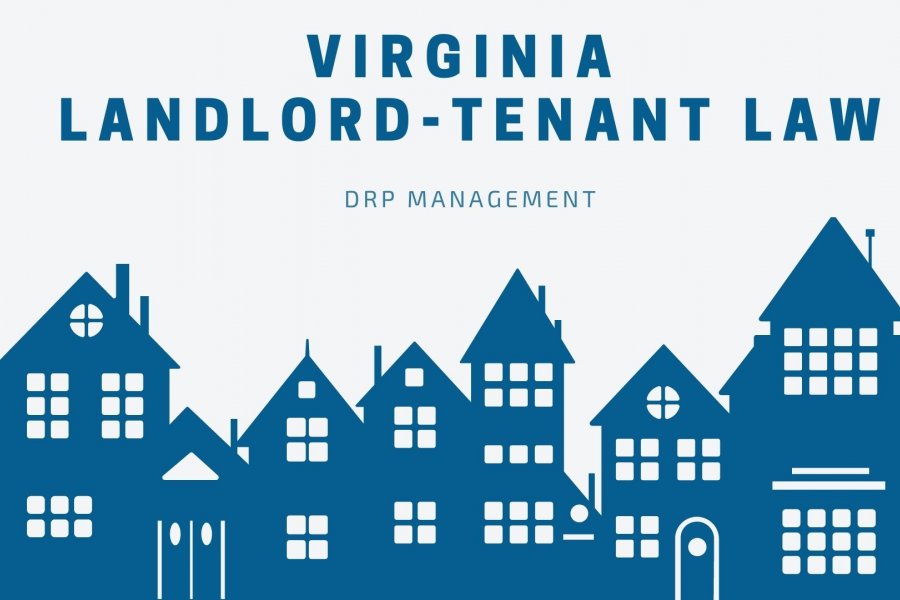
Virginia landlord-tenant laws are contained in the Virginia Residential Landlord and Tenant Act. The landlord-tenant relationship can be established either through a verbal or written rental agreement.
After the relationship has been established, both parties obtain certain rights and responsibilities as per the Virginia landlord-tenant law, aswell as local landlord-tenant laws. For instance, your tenant obtains the right to live in a habitable rental property. Failure on your part to provide such housing gives your tenant the right to terminate their lease immediately.
As a Virginia residential landlord, you also obtain certain rights such as the right to enter your tenant’s rented unit to perform needed or required tasks.
Both the landlord and the tenant also obtain certain roles.
The following is a basic overview of the Virginia landlord-tenant law.
Required Landlord Disclosures in Virginia
Landlords in Virginia have a responsibility of providing their tenants with certain mandatory disclosures when renting out a property. The mandatory disclosures under the Virginia Residential Landlord and Tenant Act are as follows.
• Information on concentration of lead paint for homes built prior to 1978
• A move-in checklist outlining the property’s condition and rentals inventory
• Names and addresses of authorized agents involved in owning and managing of the property
• Disclosure on whether the rental home is near a noise zone or an accident potential zone
• Disclosure on whether they have actual knowledge of their property being used in the manufacturing of methamphetamine
• Information on whether the property contains mold prior to occupancy. Your tenant has 5 days to dispute this disclosure after moving in.
• Disclosure on how utilities are going to be split if the rental unit is a multi-family complex
• Disclosure on whether there are any existing plans to demolish, convert or rehabilitate the unit within the next 6 months
Virginia Tenant Rights & Responsibilities
The following are the basic Virginia renter’s rights. Your tenant has a right to:

• Live in a habitable rental property that’s up to code in terms of safety and health
• Be treated respectfully and fairly without being discriminated against for being a member of a protected class
• Be evicted in accordance with the state’s eviction procedures
• Terminate the tenancy for legally justifiable reasons, such as to start an active military career and if they are discriminated upon
• Live in peace and quiet
• Be notified of any changes to the terms of the written lease agreement
• Have repairs done within a reasonable period after requesting them from the landlord
The following are the basic tenant responsibilities in the state of Virginia. A tenant must:
• Pay rent on time when it becomes due. Virginia law states that rent is due on the first day of each month during the tenancy unless otherwise stated on the lease.
• Comply with all housing codes that materially affect their health and safety
• Keep all plumbing fixtures clean
• Use all utilities, appliances, and facilities in a reasonable manner
• Pay for utility services and ensure all bills are cleared prior to them moving out
• Abide by cleanliness standards as prescribed by the rental agreement
• Maintaining the premises by preventing moisture accumulation and mold growth
• Not negligently or deliberately cause damage to the property. The tenant must also take care of any damage their cause.
• Not disturbing the peace and quiet of other tenants or neighbors
• Not to remove or tamper with the functioning of the smoke detector or carbon monoxide detector
Landlord Rights & Responsibilities
Basic landlord rights in the state of Virginia should be incuded in the written rental agreement. As a Virginia landlord, you have a right to:

• Enter rented premises
• Be notified by a tenant looking to be away for an extended period
• Make changes to the terms of the agreement
• Evict a tenant for lease violations
The following are the basic landlord responsibilities in the state of Virginia. Landlords must:
• Abide by all terms of the lease agreement
• Maintain the peace and quiet
• Serve the tenant with a proper notice prior to making any changes to the agreement
• Serve the tenant with proper notice prior to entering their rented premises
• Make requested repairs promptly after being notified
An Overview of the Landlord-Tenant Laws
Here is a complete overview of the landlord and tenant laws in Virginia.
1. Tenant Evictions
In Virginia, landlords have relatively broader authority to evict tenants. The most common reasons for tenant evictions include:
• Tenant as unpaid rent payments
• Violation of lease terms
• Illegal acts
• Refusal by the tenant to leave after expiry of the rental agreements or tenancy
The reason for the eviction must not be retaliatory or for discriminatory reasons. Also, ‘self-help’ evictions are illegal, as well. Examples include locking out the tenant and shutting off their utilities.
2. Security Deposits
Landlords must also adhere to certain rules when handling their tenants’ security deposits.
For example, you must not charge a deposit exceeding the equivalent of the rent of two months’ rent. So, if the monthly rent is, say, $1,200, then the most you can ask as security deposit shouldn’t exceed $2,400.

Aside from the maximum amount, other rules include:
• A landlord may only make deductions to their tenant’s security deposit for certain reasons
• A landlord has 45 days from the day their tenant moves out to return their security deposit
• Tenants have a right to be present at the move-out inspection
Wrongfully withholding a tenant’s security deposit, needless to say, may (and often does) attract penalties. You may forfeit the right to make any deductions to the tenant’s deposit, among other things.
3. Lease Termination
A tenant in Virginia can terminate their lease legally under certain reasons. They include:
• If the lease agreement has an early termination clause
• If starting an active military duty
• When the unit is no longer habitable
• If they violate a term of the lease
• If they become a domestic violence victim
• When the landlord fails to provide them mandatory disclosures prior to moving in
4. Housing Discrimination
The Virginia Fair Housing law handles the enforcement of housing discrimination laws. Protected classes under housing laws include race, color, disability, religion, sex, age, and nationality.
Bottom Line
If you're still unsure about how to navigate Virginia's landlord-tenant laws, call DRP Management today and let our expert team guide you! With us by your side, you can navigate the local law with ease and increase the success of your rental properties.
Disclaimer: This blog isn’t a substitute for professional legal advice. Also, laws are dynamic, and this post might not be updated at the time you read it. Please get in touch with us if you have a question regarding this content or any other aspect of property management.
